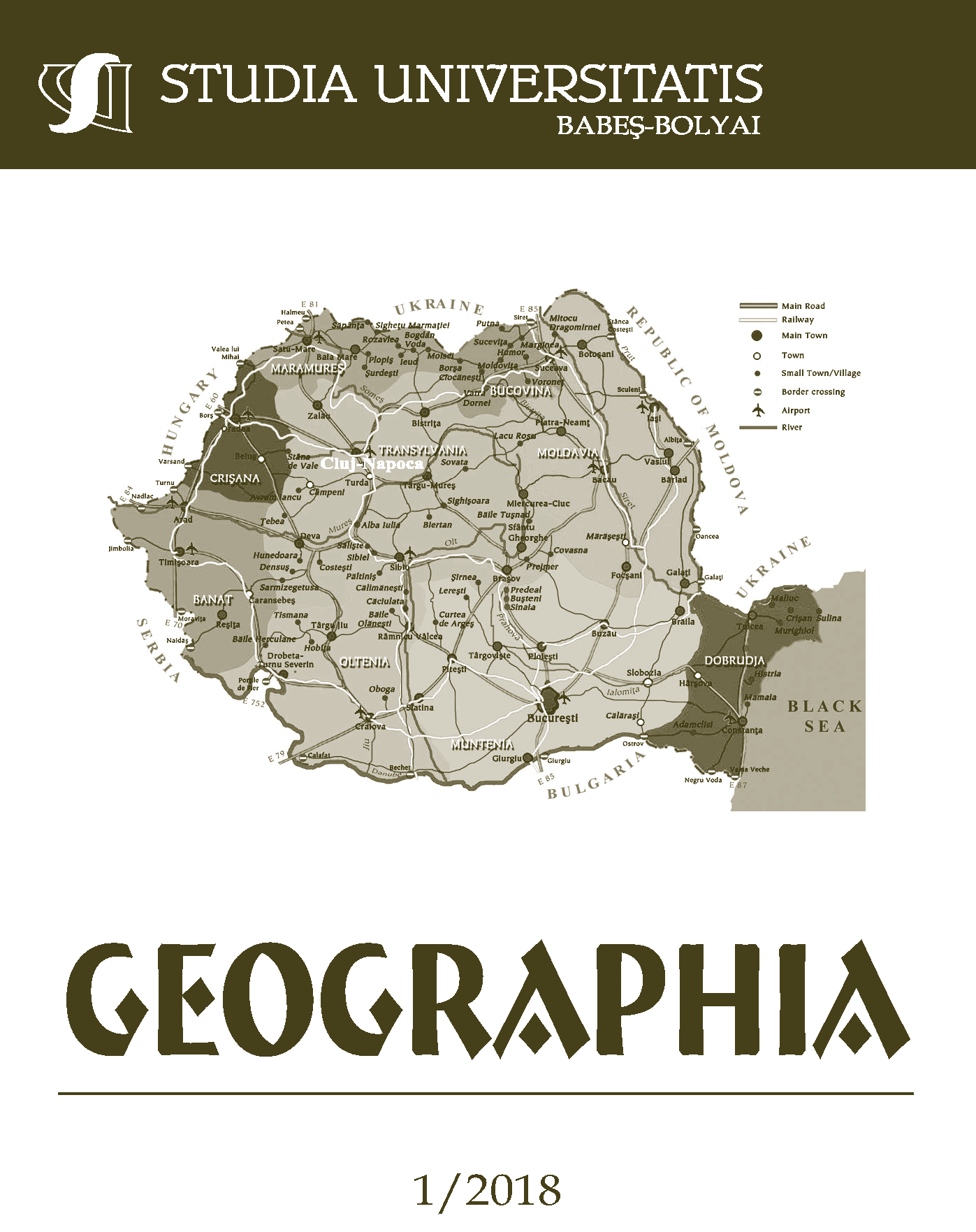SPATIAL PLANNING OF MĂRULUI VALLEY BASIN DEPENDING ON RELIEF PARTICULARITIES
DOI:
https://doi.org/10.24193/subbgeogr.2018.1.02Keywords:
spatial planning, landslides, soil erosion, geomorphological risk, agriculture.Abstract
Mărului Valley is a left tributary of Someșul Mic River that crosses the Cluj Hills along about 17 km, creating a drainage basin of 75 km². The Mărului stream flows NW-SE and confluences with the collector river in Iclod village. It is an asymmetrical valley of cuesta type (Savu, 1963), carved in Miocene deposits (Ciupagea et al., 1970). The morphology of the hillside-valley system bears the imprint of Pleistocene periglacial modelling, on which the post-glacial Holocene shaping is creeping over. The physiognomy of the five settlements in the study area attests the adjustment of their functions to the relief specificity. Being peripherally located towards the convergence axis Cluj-Dej, the study area presents a raised obscurity from the development point of view (PATR, 2004). With the purpose to remove the relative isolation to which the mentioned localities belong, this research aims at creating a model of territorial planning focused on the relief particularities, being able at the same time to answer some of the most important residents’ current necessities, such as access to communication networks and quality services (social, medical, economic, leisure), coupled with high well-being standards.References
Ciupagea, D. T., Păucă, M., Ichim, Tr. (1970), Geology of the Transylvanian Depression. Romanian Socialist Republic Academy Press, Bucharest.
Dîrja, M., Budiu, V. (2006), Land improvements. Combating excess moisture on agricultural land. Academic Press, Cluj-Napoca, 209 p.
Falk, Isabela (2007), The tertiary evolution of the Transylvanian Depression with regard to the genesis of ruptured, flexural and stratigraphic traps for hydrocarbons. PhD thesis, Faculty of Geography, Cluj-Napoca.
Goțiu, Dana, Surdeanu, V. (2008), Natural hazards and associated risks in the Land of Haţeg. Cluj-Napoca University Press, Cluj-Napoca.
Mureșan, A., Surdeanu, V. (2004) – Risk assessment in the Baia Borsa mining region. In vol. “The Environmental and Socio-Economic Impact of the Industrial Tailing Ponds”, Ed. Univ. Oradea.
Savu, A. (1963), Someşan Plateau: geomorphological study. PhD Thesis, Faculty of Geography, Cluj-Napoca.
Schumm, S.A., Lichty, R.W. (1965), Time, space and causality in geomorphology, Am. J. Sci., 263 p.
Suciu, Anca-Andreea (2001), Stratigraphy of the Miocene from the Transylvanian Basin based on foraminifers. PhD Report, Faculty of geography, Cluj-Napoca.
Surd, V., Bold, I., Zotic, V., Chira, Carmen (2005), Territorial Planning and Technical Infrastructures. Cluj-Napoca University Press, Cluj-Napoca, pp. 8-13.
* * * (2004), North West Regional Spatial Plan. Cluj-Napoca University Press, Cluj-Napoca.
Downloads
Published
How to Cite
Issue
Section
License
Copyright (c) 2018 Studia Universitatis Babeș-Bolyai Geographia

This work is licensed under a Creative Commons Attribution-NonCommercial-NoDerivatives 4.0 International License.


 ©Studia Universitatis Babeş-Bolyai Geographia. Published by Babeș-Bolyai University.
©Studia Universitatis Babeş-Bolyai Geographia. Published by Babeș-Bolyai University.